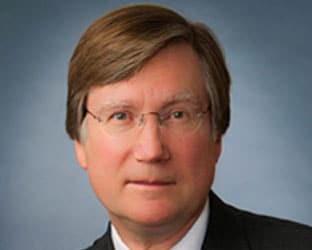Yesterday, in what Wilkinson Barker Knauer partner David Oxenford calls “a very short one-page decision,” the U.S Court of Appeals rejected the requests filed by public interest groups including Free Press to stay the effect of the FCC’s decision to reinstate the UHF discount.
While this does not signal the Court’s final approval of the FCC’s decision to reinstate the discount, Oxenford notes that the ruling does suggest the direction which the Court is likely to take in its assessment of this Commission decision.
In a column appearing at his Broadcast Law Blog, Oxenford states, “For the foreseeable future, this decision will free many broadcast television groups to acquire more television stations, as UHF stations (which most TV stations now are) count for only half their audience reach in assessing compliance with the 39% limit on the national audience share that any TV owner can have.”
In rejecting the stay, Oxenford says, the Court “merely says that the public interest groups did not meet the high standards necessary for a stay.”
“There is a high burden for any petitioner to meet before a stay is ordered,” he says. “Basically, the court looks at questions including whether the petitioner has shown that it is likely to ultimately prevail in the final decision in the case, whether there are irreparable damages that will occur from not issuing the stay and how the equities of the situation weigh in deciding whether a stay should be imposed. Presumably, the Court here either decided that the public interest groups had not shown that they were likely to prevail in the ultimate appeal of the FCC’s decision, or that they had not shown that there would be irreparable harm from not imposing the stay.”
This decision does not end the case, Oxenford notes.
“The public interest groups can continue to pursue their appeal though full briefing and oral argument and a full court decision,” he says.
However, the rejection of the stay greatly increases the odds that the FCC will ultimately prevail in its defense of the reinstatement of the UHF discount.
“This is not a case where new facts or arguments are likely to be raised in the full briefs in the case,” he says. “The record supporting the decision is already in place. No new evidence will be adduced by the Court before rendering its final decision. Instead, the same basic principles that supported the arguments for the stay will be the same principle arguments that support the underlying appeal. It would seem that if the Court decided that these arguments were not clear and convincing winners in connection with the stay, it would be likely that, given the deference that the Court must give to the opinion of the expert agency, those arguments are unlikely to be found convincing in connection with the ultimate appeal.”
Of course, things change, and Oxenford says the judges hearing the appeal may not be the same ones who heard the stay request.
“The arguments can be presented in another, more compelling way,” he said. “Or the rejection of the stay could have had nothing to do with the merits of the case, but instead could have been based on the lack of irreparable harm from not imposing a stay – e.g. thinking that any deals that are approved in reliance on the UHF discount could be undone if the Court were to ultimately reject the FCC’s decision. But, the decision certainly increases the odds that the reinstatement of the UHF discount will be upheld.”




